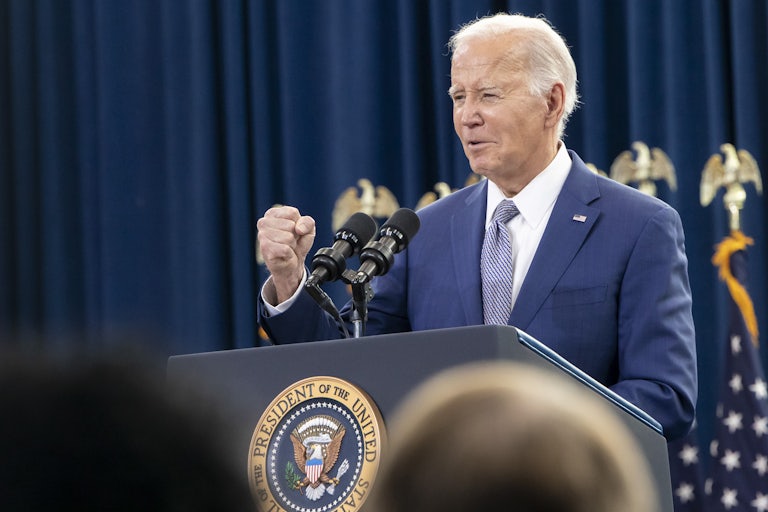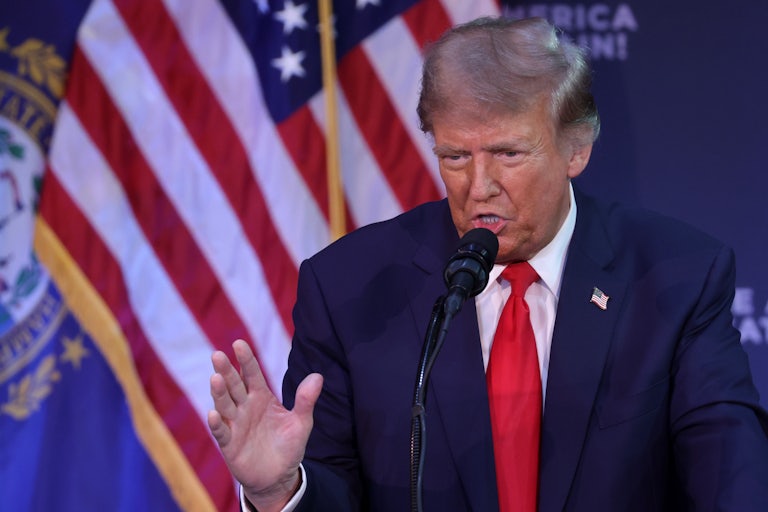House Republicans’ Majority Just Shrank Even More. Let the Chaos Begin.
The Republican Party finds itself in a precarious position, thanks to a new round of retirements.

House Republicans started the week with a new, even smaller majority that could set the chamber up for a remarkably unproductive session.
As of Monday, Democrats have 213 seats in the House. Republicans have just 219 seats, after Ohio Representative Bill Johnson served his last day in the chamber this weekend. There are also two other vacancies, with the expulsion of George Santos and the resignation of Kevin McCarthy late last year.
This will likely make it even harder for Congress to get anything done in its new session. If just three Republican lawmakers dissent, Republicans won’t be able to pass legislation. If Democrats win over four Republicans, they could flip the tables and push through their own agenda.
During the first half of its first two-year session, when Republicans had a larger majority in the House, the 118th Congress passed less than 30 bills through both chambers. Typically, Congress passes between 300 and 450 laws per session.
Even when Republicans controlled at least one chamber during Bill Clinton’s and Barack Obama’s presidencies, Congress managed to pass at least 70 bills during those sessions.
This Congress’s low productivity can be blamed in large part on Republican in-fighting, particularly over government spending bills and their own House speaker. The party’s farthest-right wing has repeatedly demanded to slash government spending, taking the U.S. to the brink of a disastrous shutdown multiple times as representatives fought to get their way.
This led to McCarthy’s ousting as House speaker, after he made a deal with Democrats to keep the government funded. The multiple agonizing rounds of votes for speaker, first for McCarthy and then for his successor, Mike Johnson, have paralyzed the House. And Johnson may soon be on the chopping block, as well.
More than ever, Republicans can’t afford defectors if they want to pass anything. But they have yet to achieve total unity for a single vote. It’s starting to look less and less likely that Congress will achieve anything this year, either.








